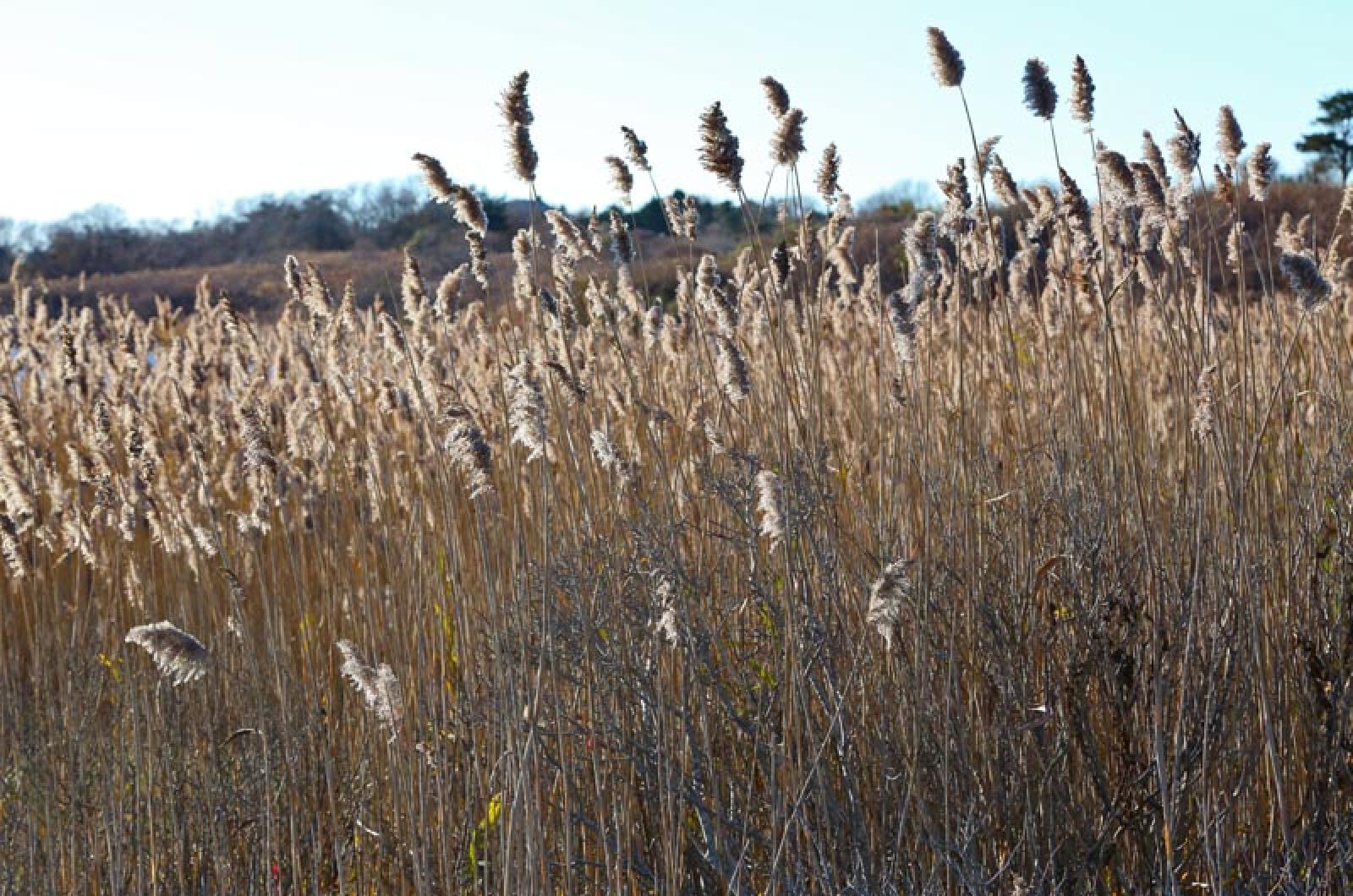Phragmites, the sturdy, towering reeds that populate the shorelines of coastal ponds, have long been considered an environmental pest: invasive, nonnative, a spreading nuisance worthy only of eradication. They’ve been the source of disputes among neighbors; a few short years ago a group of riparian owners abutting Squibnocket Pond waged a bitter and ultimately unsuccessful fight with the town of Chilmark in an effort to use pesticides to eliminate phragmites. The respected environmental group Sheriff’s Meadow Foundation launched an experimental project to rid shorelines of the plant naturally.
Now phragmites are getting a second look, thanks to the Martha’s Vineyard Shellfish Group which is leading a pioneering project to study the plant’s potential benefits to absorb nitrogen from saltwater estuaries.
Begun two years ago with a grant from the Edey Foundation, the study set out to explore the possibility that phragmites — which arrived on the Vineyard with the earliest settlers — could in fact be beneficial because they take up nitrogen, a harmful pollutant that comes mostly from septic systems is the lead culprit in declining water quality in coastal ponds.
The pilot project showed promising results, but then hit a roadblock early this year when further funding was denied by the Woods Hole Sea Grant Program.
Last week the project got a green light to continue with the award of a large grant from the federal Environmental Protection Agency. Administered through the EPA’s Healthy Communities program, the grant will help the shellfish group and a coalition of others, including the Martha’s Vineyard Commission and the University of Connecticut marine science department, take the study to the next phase. Over the next two years, a densely grown area of phragmites along the shore of Chilmark Pond will become a test site to learn more about how nitrogen cycles through plants, and whether harvesting the plants for agricultural use is feasible, among other things.
Scientific breakthroughs often start with researchers looking at an old problem in a new way, and this exciting project certainly upends the conventional wisdom that phragmites is nothing more than a pest to be eradicated. Whatever the results, the study serves as a reminder about the value of challenging assumptions.
We applaud the shellfish group for its cutting-edge work and look forward to the outcome of this important study.




Comments
Comment policy »